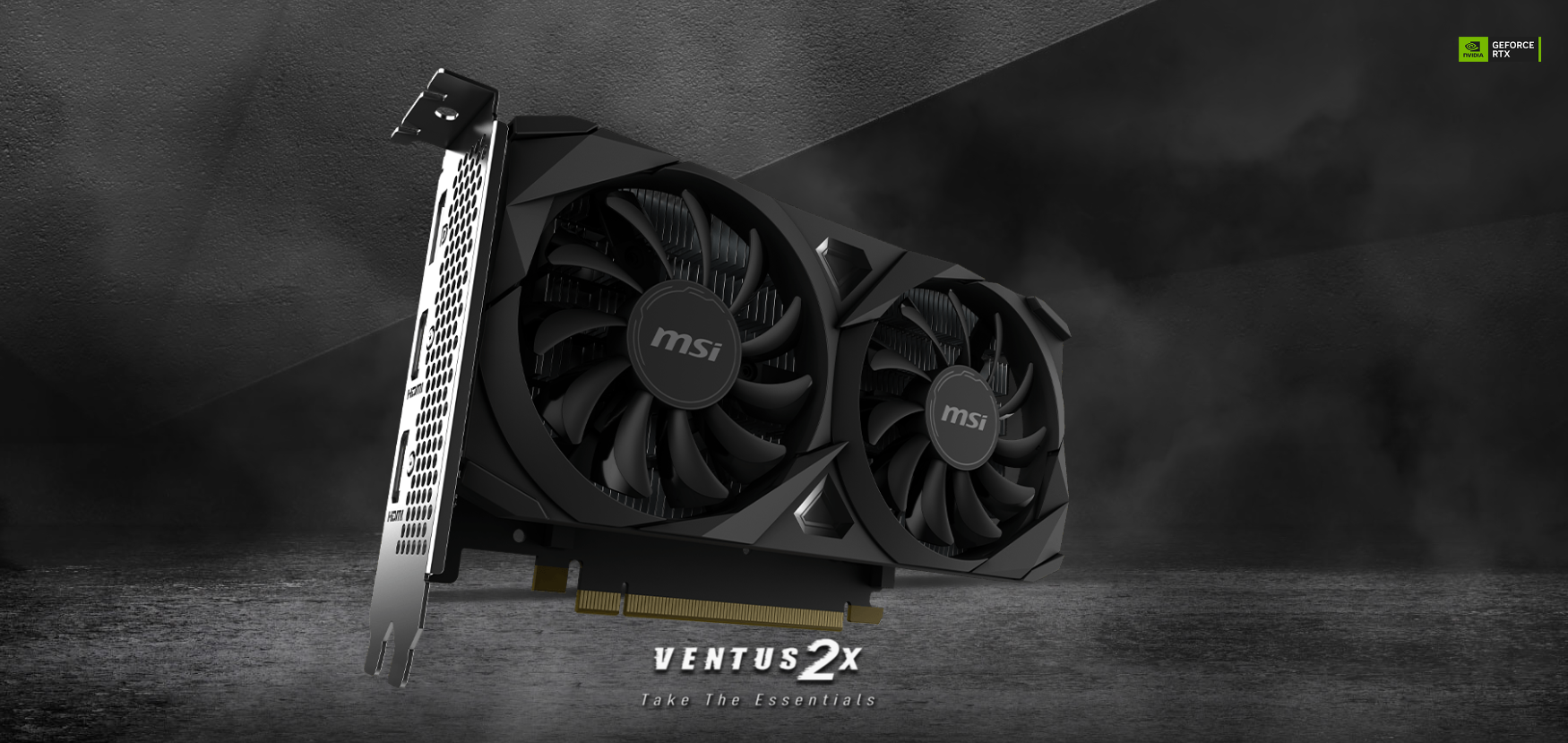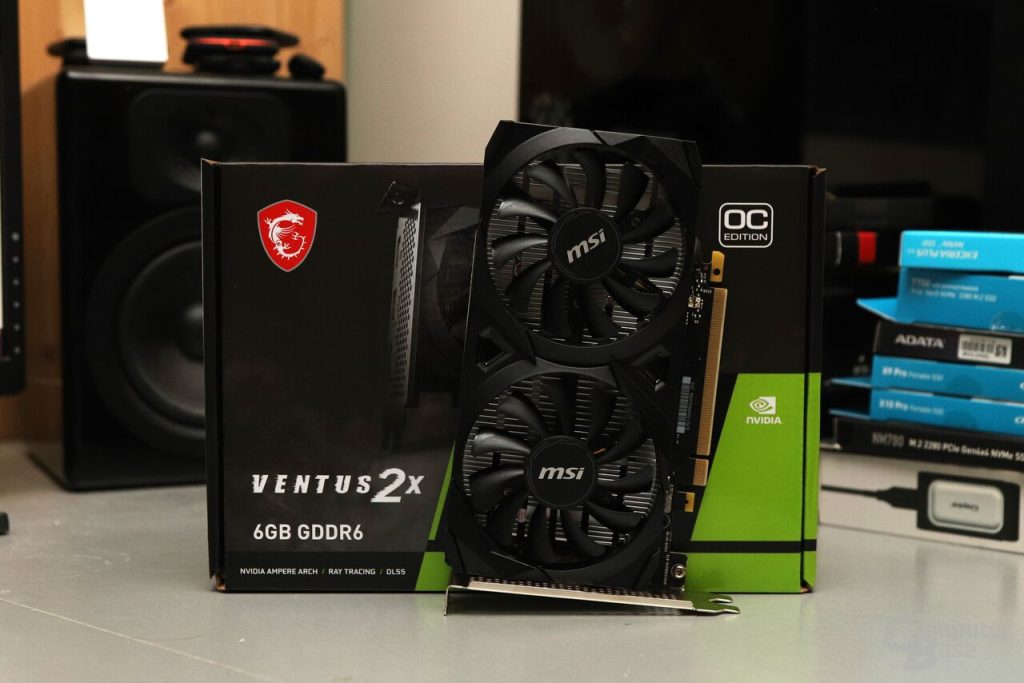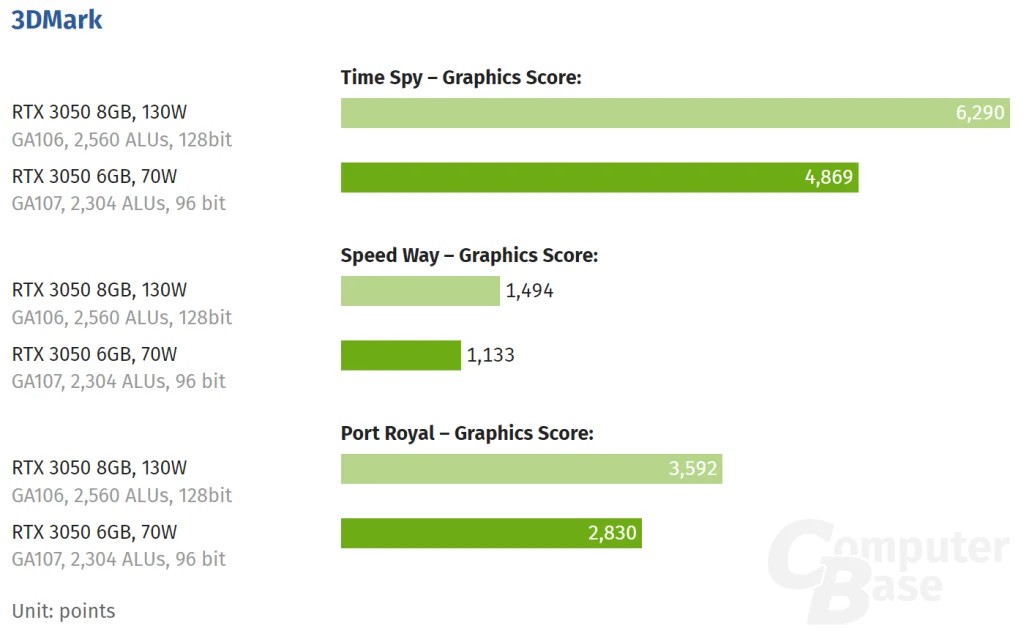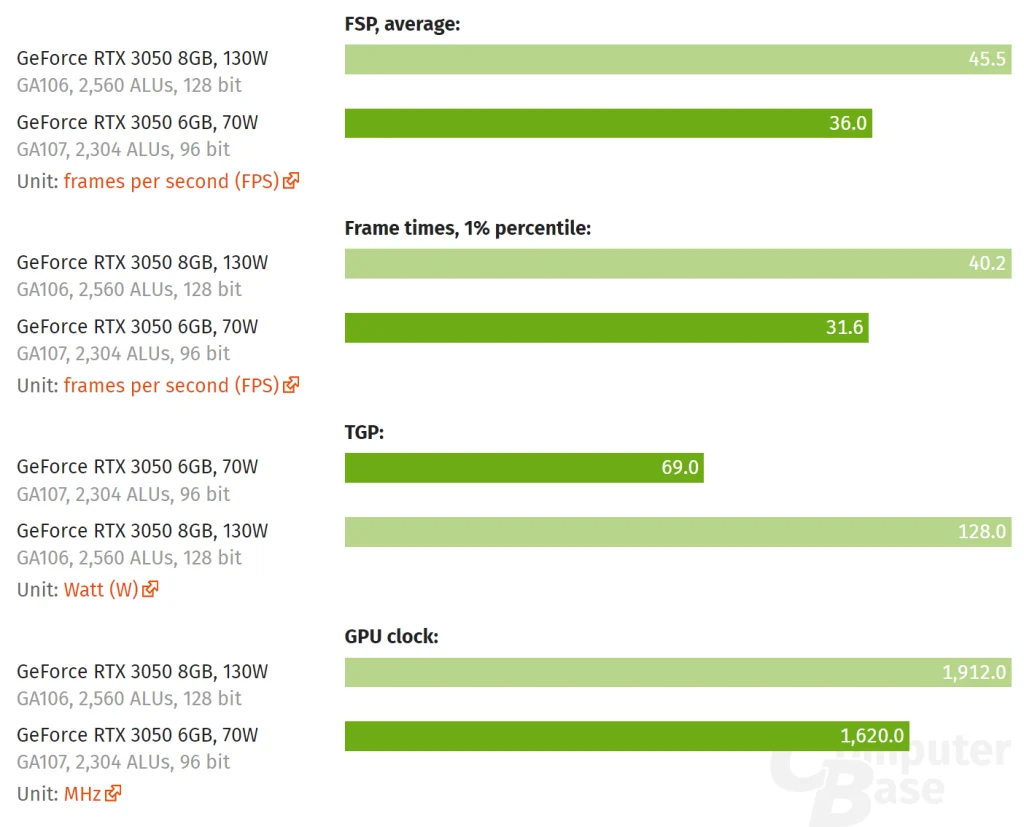The RTX 3050 6GB Lags 20% Behind the RTX 3050 8GB, With Nearly Half the Power Consumption

Yesterday, NVIDIA launched the RTX 3050 6GB, which is a heavily nerfed RTX 3050 8GB, though at a much lower price point. As the GPU has recently been released, only a few reviewers have had the opportunity to receive and assess it thus far
RTX 3050 6GB: 20% Slower than 8GB Counterpart
On the subject of reviews, ComputerBase purchased an MSI RTX 3050 6GB Ventus 2x OC model and put it to the test. The test is short but gives us a general overview regarding the performance of this GPU. This specific variant features a 70W TDP, but clocks 20MHz higher than NVIDIA’s specs.

Interestingly, NVIDIA recently launched the GeForce 551.32 driver version which adds support for the RTX 3050 6GB. ComputerBase managed to snag this model due to some premature listings on Thursday, with the GPU arriving by Friday afternoon.
The RTX 3050 6GB fails to even match its 8GB version in various 3DMark benchmarks. This, however, is expected since the power limit has almost been cut in half. This in tandem with the lower ALU count, reduced memory, and bus-width should’ve led to an even bigger difference. Yet, at half the TDP, the RTX 3050 6GB is just 20% behind the RTX 3050 8GB.

Paired with the Ryzen 9 7900, in Cyberpunk 2077 (FHD, High, no Upscaling) the RTX 3050 6GB shows a 21% performance difference. Notably, the measured power is rated at roughly 70W, whereas the RTX 3050 8GB sips as much as 128W. Likewise, the GPU clock speeds also reduce to just 1620MHz, 15% lower than the RTX 3050 8GB.

Conclusion
The RTX 3050 6GB features 2304 CUDA Cores, a 96-bit memory interface for a total of 168GB/s of bandwidth. Furthermore, NVIDIA has used GA107 for this GPU instead of GA106 seen on the RTX 3050 8GB.
Initial benchmarks are about what we expected. Do note that since this GPU can run entirely off the PCIe slot, without any external power connectors, it is the perfect choice for SFF builds. Better yet, it can be a viable successor to old LP GTX 1650 GPUs.
At $169, you are within 20% of an RTX 3050 and do not require a PSU rated at more than 300W. You also get the added benefits of RT, DLSS, and AI Performance, something which the GTX 16 series lacks. Though, we would’ve loved to see a potential 70W RTX 4050 at this price point instead.
Source: ComputerBase





